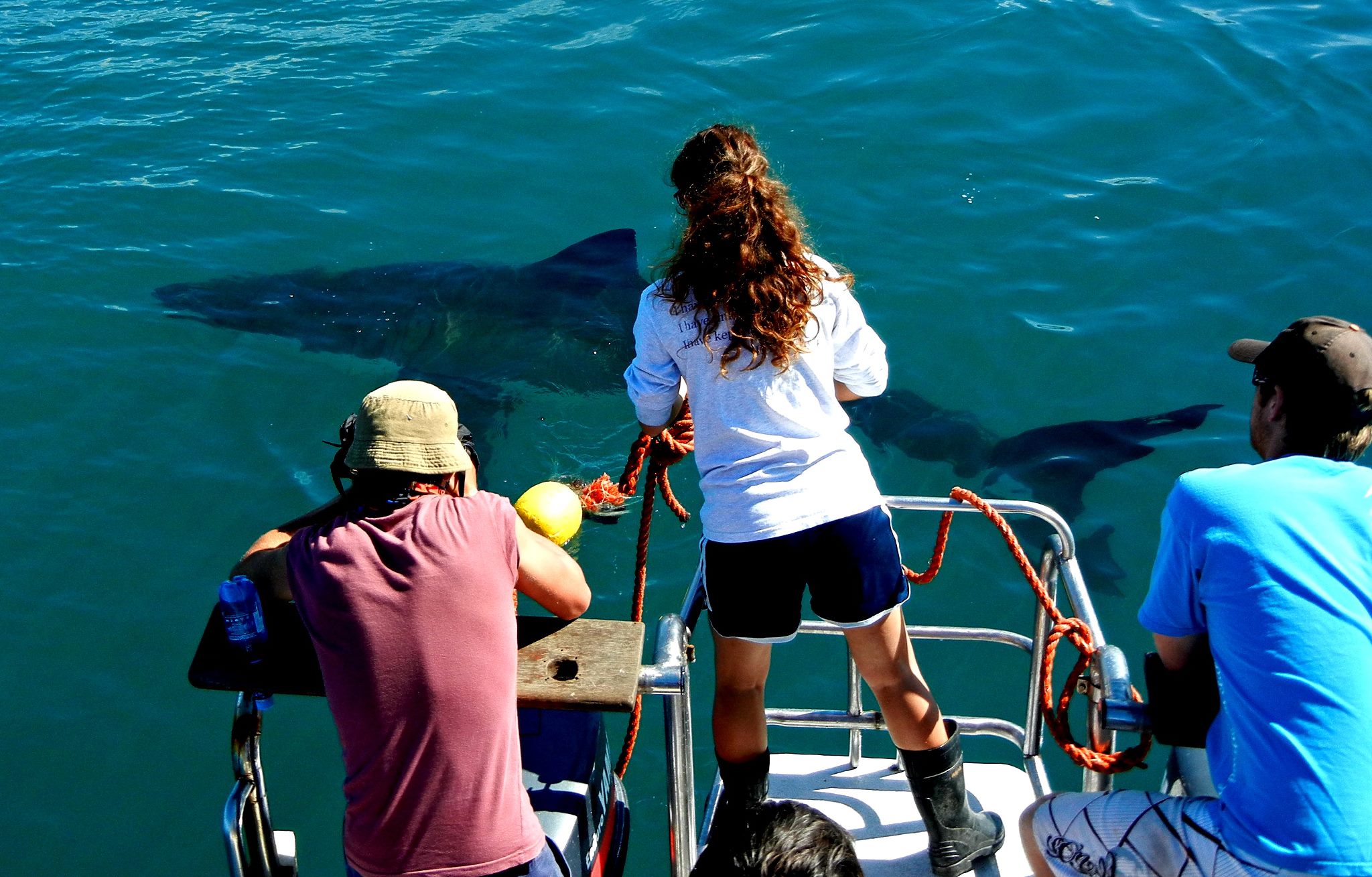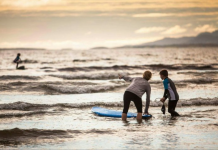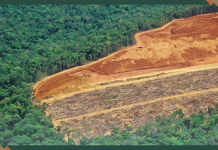In honor of International Women’s Month, The Planetary Press is highlighting women around the globe who are driving positive change for our planet and global community. Today, we are thrilled to introduce you to marine biologist, science communicator, and “Mother of Sharks,” Melissa Cristina Márquez.
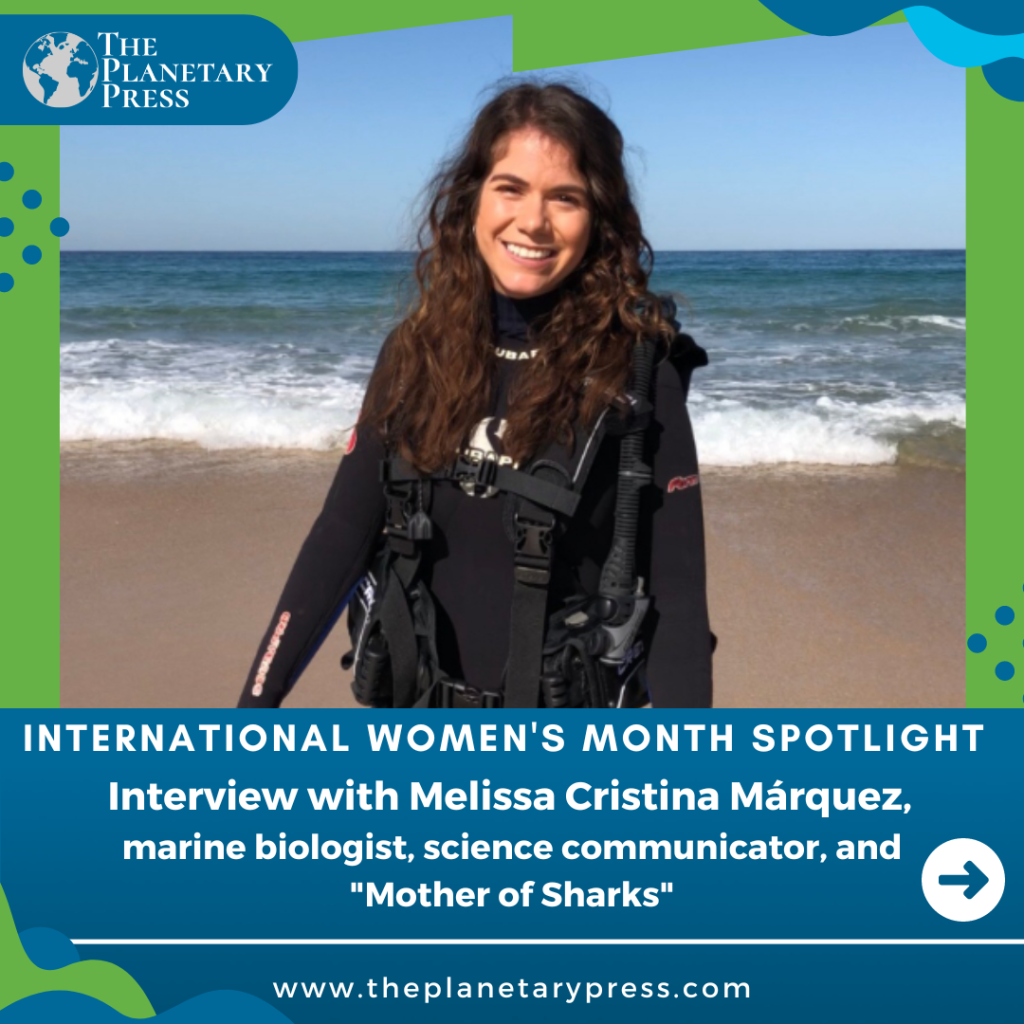
Please tell us a little about yourself and your work as a shark scientist and science communicator.
Hello! My name is Melissa, and I’m a Latina Ph.D. student studying shark habitat use in coastal lagoons out of Western Australia (WA). Born in Puerto Rico and raised between that little Caribbean jewel and Mexico, I moved across the world to study why sharks are where they are in WA using technology like underwater video cameras and drones. I’m also a wildlife educator, teaching people about our oceans, sharks, and other incredible animals who call our planet home. I do this through my books, TV shows, and articles I write online.
You are the author of the successful Scholastic Wild Survival series. Can you tell us about the series and your inspiration for these books?
The Wild Survival series is a middle-grade environmental action book that focuses on predators and our amazing environment!
Twelve-year-old Adrianna Villalobos and her older brother Feye travel the globe with their parents, the hosts of a suspenseful nature show called “Wild Survival!” The show features daring animal rescues and the work the family does at their animal sanctuary. They have recently gotten an offer to take the show from YouTube to a TV network, and Adrianna is thrilled. So far, she’s always been behind the scenes, but now she gets to join the rest of her family onscreen. She can’t wait to bring her passion for animals to a wide audience.
The first stop is Cuba, the next is Sri Lanka, and the third is Mexico. But not all goes to plan, and there is something fishy going on with the guy who gave the Villalobos family this incredible opportunity. The inspiration came from my own fieldwork, my own experiences, and part of what my friends in the sciences do too! I’m so lucky to have lived an adventure-filled life that I can grab inspiration from.
Can you tell us about your new book, Mother of Sharks?
Mother of Sharks (available in both English and Spanish, as Madre de los Tiburones) is an autobiographical picture book… sort of. It’s mixed in with some magic where a little hermit crab, Jaiba, takes a young Meli (that’s me!) on a dreamlike underwater adventure, teaches her about the importance of shark conservation, and reveals Meli’s ultimate destiny: to become the Mother of Sharks. The illustrator, Devin Elle Kurtz, did a phenomenal job and really hit it out of the park with her work. She brings the whole thing to life!
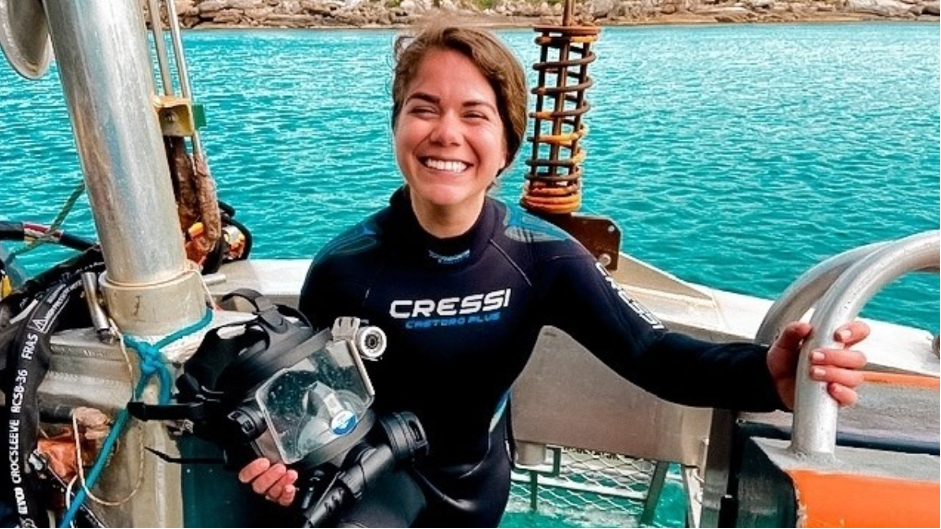
What have been some of the biggest challenges you have faced as a woman in STEM, and how have you overcome them?
I’m not the only woman in STEM who has faced discrimination because of my age, race, gender, etc. There are many of us who deal with this on a day-to-day basis. But by seeking out others who have gone through similar challenges, this support network allows us all to take care of our physical and mental health and well-being. I couldn’t face any of the obstacles I have faced (and continue to do so) without my support system, which is why I stress that “finding your group of people” is vital to success.
A lot of media surrounding sharks paints them as aggressive man-eaters– we have all seen the infamous Jaws. Can you dispel this myth and share why shark conservation is so important?
Most sharks are not dangerous to humans – with over 500 different species of sharks, only a handful have been implicated in bites against humans. They’re not these bloodthirsty animals we’ve made them out to be, with shark bites being incredibly rare (you’re more likely to get bit by someone in New York or get hit by lightning than ever bit by a shark).
Sharks play a vital role in the different ecosystems they are found, and if we take them out of the equation, the delicately balanced habitats could collapse and cause severe damage to our oceans.
The current rate of shark population decline is unsustainable. What are the main challenges facing sharks?
The biggest threat sharks face is overfishing! According to the IUCN, a quarter of the world’s shark species are threatened with extinction due to this phenomenon (catching too many fish at once, so the breeding population becomes too depleted to recover). The issue of overfishing is closely linked to bycatch, which occurs when fishers capture unwanted sea life while targeting a different species. This is another big issue that sharks are facing!
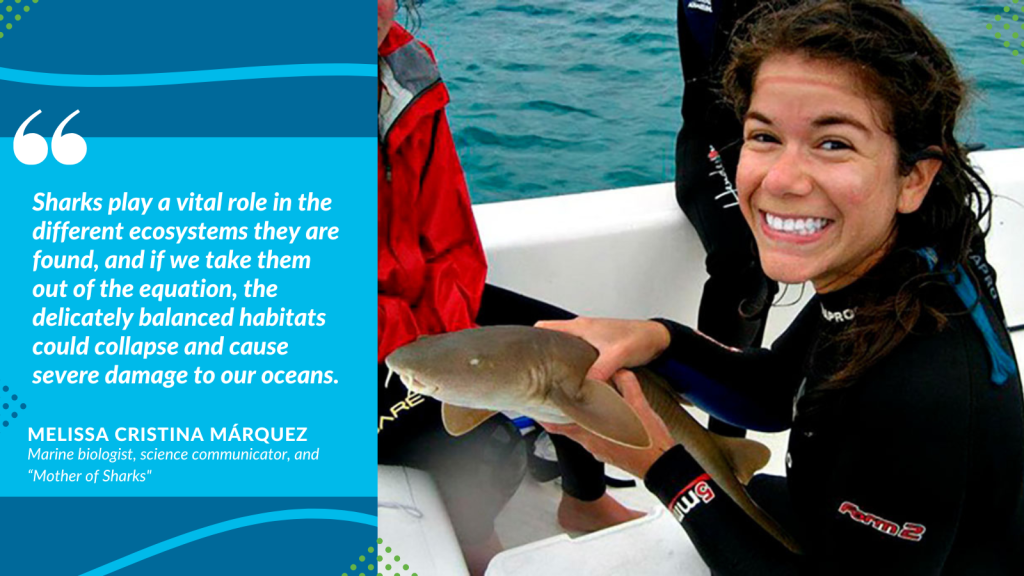
What is your favorite shark?
Tiger shark (Galeocerdo cuvier)
Why do we need more women in leadership roles?
You cannot ignore 50 percent of the population! Women are transformational role models who bring fresh perspectives, skills, and structural and cultural differences to get us to more effective solutions than what we are currently seeing.
What inspired you to choose your career path?
I grew up on an island (Puerto Rico) and was always curious about what was beneath the waves. I knew that in order to answer the many questions I had about our oceans, I would one day have to be a scientist to study them! And I’ve done exactly that.
What advice would you have for your 13-year-old self?
Don’t let anyone take away these two things: your sense of curiosity and your passion. These two traits make you who you are and make you a fantastic writer and researcher. Just remember this: if you’re too much for someone, they can always go find less.
What book would you recommend to inspire people?
I think everyone has to read “Braiding Sweetgrass” by Robin Wall Kimmerer at least once! It will really make you look hard at how you coexist with wildlife and nature.
Keep up with Melissa!
Website(s): melissacristinamarquez.com
Twitter: @mcmsharksxx
Facebook: @melissacristinamarquez
Instagram: @melissacristinamarquez

